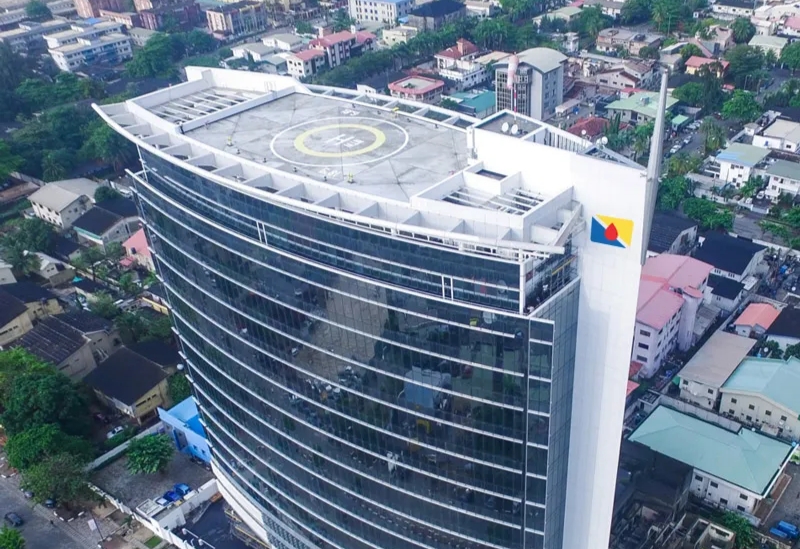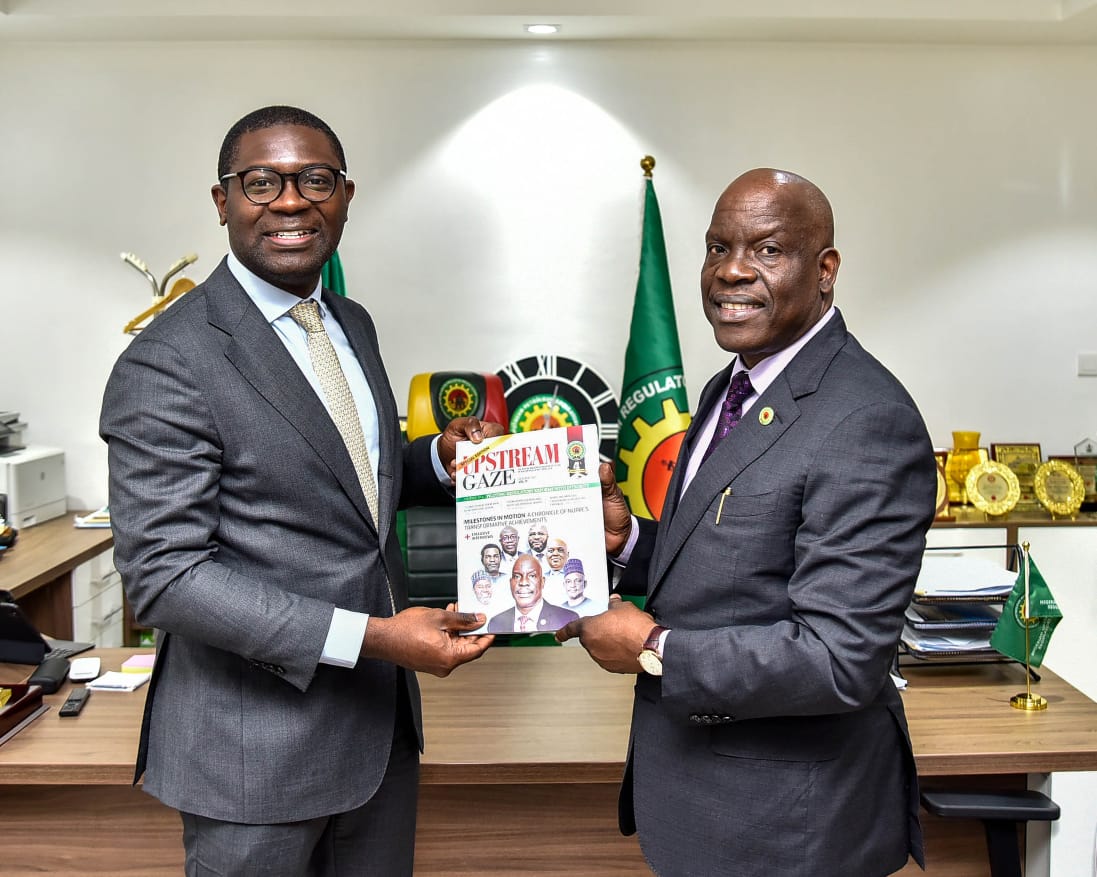•Says in last 15 months, real investment flows rebounded in energy, mineral resources, others
•Urges more public sector reforms
Ndubuisi Francis in Abuja
Consistent with recent positive ratings of Nigeria’s economic trajectory, a new report by Quartus Economics has declared that the country is back on the path of stable growth.
The report, however, insisted that the current level of production in the country remained too low to drive shared prosperity for all.
The three-section report, titled, “Is Africa’s Eagle Stuck or Soaring Back to Life?” stated that perhaps the clearest sign of restored economic stability was the recovery in Nigeria’s external reserves in the middle of currency appreciation.
It recalled that the decisive reforms of 2023–2024 (the removal of fuel and foreign exchange subsidies) were critical measures to save the economy, adding that although the immediate shocks fuelled inflation in the early months, the twin action corrected deep-seated distortions that had drained public finances and weakened market incentives for decades.
The report said, “By 2024, the first signs of renewal began to emerge: GDP expanded by nearly four percent, manufacturing and mining sectors returned to growth, and for the first time in many years, economic expansion outpaced population growth.
“Inflation began to ease, the naira regained modest stability, and by October 2025, foreign reserves had risen to $42 billion, signalling a slow but a genuine restoration of confidence.
“Both foreign portfolio and foreign investments also picked up. After lean years, foreign direct investment rebounded to more than $1 billion in 2024, with fresh commitments in 2025. All of these tell a simple story: investor confidence is back on the uptick.
“Perhaps, the clearest sign of restored economic stability is the recovery in Nigeria’s external reserves in the middle of currency appreciation.
“For nearly a decade, Nigeria’s reserves followed a worrying downward path—falling from over $42 billion in 2018 to barely $32 billion in 2023. This decline reflected years of low oil receipts, high import bills, and heavy fiscal strain.
“By 2023, reserves were at their lowest in seven years, a level that left both investors and policymakers anxious about the country’s external vulnerability.”
The report added, “Then came a turnaround. In 2024, reserves climbed sharply to about $40 billion, and by October 2025, they stood at roughly $43 billion, the highest in five years.
“This rebound is not merely a function of higher oil prices. It is underpinned by disciplined external management, growth of non-oil exports, and a notable rise in capital inflows.
“The central bank’s more transparent market operations and a gradual shift toward market-oriented stability rather than control also helped rebuild confidence in the currency.
“Beyond the optics, a healthier reserve position strengthens the naira, reduces speculative pressure, and allows the country to meet import
and debt obligations without the constant fear of depletion.
“It also signals to foreign investors that Nigeria is once again a safe destination for capital, a market where policy stability and economic fundamentals align positively.
“The recovery of Nigeria’s reserves captures the essence of the monetary and broader economic turnaround.”
The report stated that the foreign reserves recovery also “reflects an improvement in numbers and a return of balance. It signals a restoration of the buffers that protect the economy from shocks.
“For a country that has weathered the trauma of currency losses and capital flight, regaining and securing this cushion is a crucial win”.
It said, “Inflation, until recently the biggest pain point, continues to ease off. From a peak above 30 per cent, it fell to its 3-year low (around 18 per cent) by September 2025. For the first time in a decade, food inflation declined, as prices of basic items moderated.
“The monetary policy rate, which had climbed aggressively to combat inflation, also started to decline.
“Nigeria’s currency, the naira, has shown unusual resilience. Between December 2024 and October 2025, it gained roughly five percent against the dollar, reflecting improving balance-of-payments position and new investment flows.”
The report, however, submitted that the effect of Nigeria’s economic descent during the 2014 to 2023 decade could not be ignored or discounted.
According to the report, in reality, the economy emaciated, shrinking in US dollar terms by more than $200 billion during a period when the population expanded by over 40 million people. Stating that this huge deficit and the negative effect on standards of living could take decades or more to reverse, it stressed that relative to regional and aspirational peers, Nigeria retrogressed in real economic terms, pushing over 65 million residents below the poverty line.
It further explained that despite Nigeria’s recent return to stable growth, the current level of production was too low to drive shared prosperity.
The report stated, “Besides, today’s stock of infrastructure is low due to weak investment in the past. Thus, pushing back poverty at a quick enough pace requires more actual investment in human and physical capital than the country has the resources or capacity to deploy.
“Beyond production to meet local demand, Nigeria’s export basket remains narrow, concentrated around crude oil and gas, a sector that offers limited capacity to drive inclusive growth except through efficient use of oil-related government revenues.
“Current and near-term GDP growth is low Nigeria’s GDP growth rate for 2027 is forecast to be 4.4 percent. At this rate, GDP per capita by 2030 is expected to be $1,565, less than half of the value in 2014, a time when GDP stood at $574 billion, more than double today’s production, with less than 80 per cent of today’s population.
“As a measure of living standards, the GDP per capita forecast shows that even if reforms are consolidated and growth accelerates, Nigeria’s journey to full recovery is still years away, especially in view of expansion in the country’s population.
“While a large population is an important ingredient for rapid economic growth, a country suffers more from a rising population when it fails to make necessary investment to secure and build the productive capacity of its young population.
“Already, when compared to other countries within and outside Africa (e.g. Ethiopia, Senegal, Indonesia, Vietnam, and Kenya), Nigeria’s productivity lags remarkably, with 5-year GDP growth merely a fraction of population growth. For peer countries, GDP grew in multiples of population growth.”
It pointed to the persisting structural weaknesses and cultural deficiencies, noting that both threaten Nigeria’s dream of shared prosperity and diversified exports.
According to the Quartus Economics report, reforms are still work-in-progress with much ground yet to be covered.
It stated, “Until multiple measures of health begin to align, no recovery can be called stable. In the past year, however, Nigeria’s macro health indicators have shown respite and promise.”
Equally, beyond progress in tax reforms, the report said fiscal management (like public-sector procurement) urgently needed change.
It said, “Without much-needed reforms here, the transmission mechanisms for public expenditure will remain weak and fail to drive growth. The intense scramble and ‘crave’ for public office in Nigeria is merely symptomatic of a pro-establishment elite culture that seeks to feed on, rather than build the system.”
The report also stated that 10 years from now (2035), Nigeria’s population had been projected to surpass 280 million and peak at 320 million by 2050, adding that against a weak productive base, resources to raise, train, and expand infrastructure and social services to cater to a larger population can constrain economic growth.
The report said Nigeria was now in a better place than it was two years ago.
But it pointed out that the economy was like a patient, promising and vulnerable at the same time.
It prescribed some measures, including raising production and productivity across the agriculture value chain; fostering the culture of making things; initiating crucial reforms in the public sector; and taming the “locust” culture, among others.
On the need for public sector reform, the report stated that despite Nigeria’s largely successful privatisation programme, the three tiers of government together remained the economy’s largest spenders.
It stated that without crucial reforms designed to direct public resources to their most effective social and economic uses, the country would continually miss both inclusive and accelerated growth.
It said, “Reforming the public sector is not merely about cutting costs; it is about restoring purpose and efficiency to government spending.
“Every naira deployed must translate into measurable economic and social value, not lost in layers of bureaucracy and patronage.
“A leaner, more accountable public system would free resources for infrastructure, education, and innovation (the true drivers of growth).”
To a fixed exchange rate that cost the economy dearly, the report said such must not happen again.
It added, “Any promise of unearned soft life in the present only endangers the country’s future and economic fortune.
“The real test of reform lies not in its announcement but in its endurance through political cycles.
On the monetary side, Nigeria’s currency regime is long overdue for an overhaul.
“The naira in the past two decades has lost so much value and gained so much weight that either introducing higher denominations or an outright redenomination is required to restore the naira’s portability.
“Especially in the informal sector, rural areas, and open-air markets on the country-side, portability is crucial for the velocity of money. Today, the naira trades on both ATMs and POS terminals because of its weight.”



